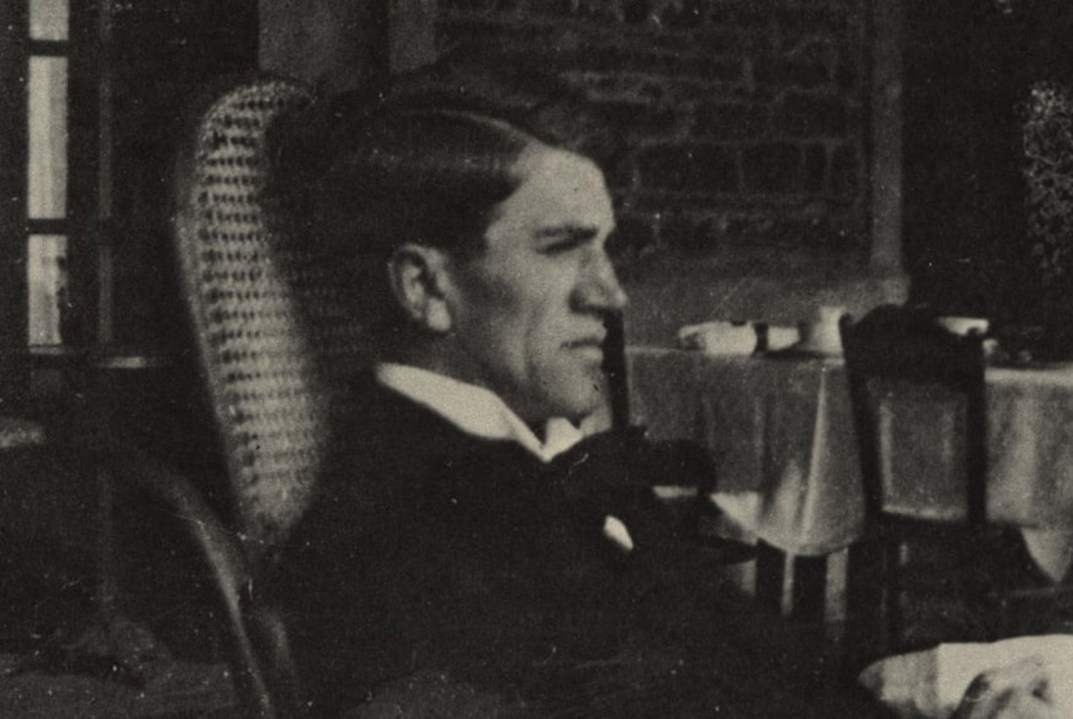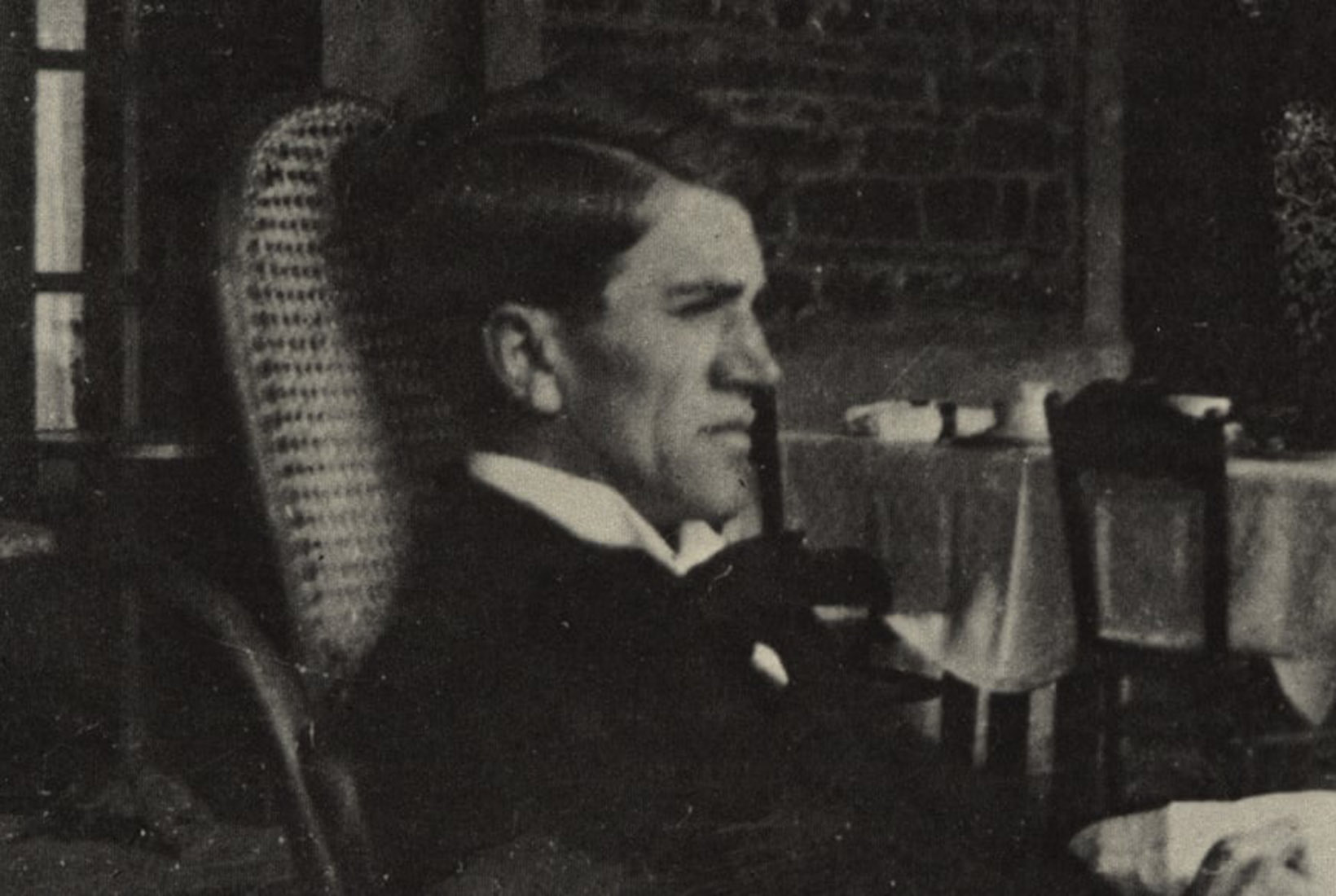Wilhelm Nero Pilate Barbellion, real name Bruce Frederick Cummings, earned his living measuring the legs of lice in the Natural History Museum. ‘To the lay mind how fantastic this must seem!’ he exclaimed in his journal, before enumerating his enthusiasms for Burton’s Anatomy of Melancholy, names like ‘Mr. Hogsflesh’ and ‘Pickle Herring Street’, and Petticoat Lane on Sunday mornings.
The young naturalist had a habit of landing himself in embarrassing situations. He once spotted a pretty woman at the theatre and composed a notice for the classifieds in a bid to find her. The editor sent his missive back supposing he was a white-slave trafficker. Another time, a new mother with a ‘large, red udder’ and an uninterested infant offered to suckle him on the bus.. ‘Do I look ill nourished?’ Barbellion wondered to himself later.
If you haven’t read The Journal of a Disappointed Man, and I hadn’t, the recent episode of Backlisted will have you running to do so at once. Presented by John Mitchinson and Andy Miller for the publishing house Unbound, the podcast prides itself on ‘giving new life to old books’, but with Barbellion it’s more a case of celebrating a life preserved through books. The author of the hilarious coming-of-age Journal and A Last Diary was just 30 when he died of multiple sclerosis in 1919.
A new mother with a ‘large, red udder’ and uninterested infant offered to suckle Barbellion on the bus
Barbellion described his journal as a ‘self-portrait in the nude’. He filled it with confessions, the natural products, he believed, of a true scientist and ‘self-investigator’. But there is an endearing bravado, a ‘boyishness’ they called it in the episode, to Barbellion’s persona. The most enjoyable moments of their discussion were prompted by Barbellion’s boyishly self-knowing lines. One could not help but smile as they read his passages on the reception of his Journal in the weeklies:
‘For the most part the reviewers say what I have told them to say in the book. One writes that it is a remarkable book. I told him it was. Another says I am a conceived prig. I have said as much more than once.’
I’d have been hooked sooner had the podcast opened with such a line. The preamble to the episode, which had authors Claire Fuller and William Atkins as guests, was a few minutes too long. But the discussion moved well between the comic and tragic elements, with Barbellion’s courage and maturity in the face of death coming increasingly to the fore. We heard how, confined to his bedroom for months at a time, he listened to the birds, looked at the trees through his window, and resisted self-pity. He had no time to be bored.
The year Barbellion died, 1919, witnessed race riots in various port towns across the country. Barry in South Wales was among those targeted, as Jamaican chip-shop owner James Gillespie testified in a letter now held by the National Archives. On the Record, the Archives’ quirkily arcane podcast, is currently unearthing love letters from its collection to explore in unlikely pairings. Hence Gillespie’s letter expressing his feelings for Britain and his family was this week juxtaposed with Robert Dudley’s last letter to Queen Elizabeth I.
Gillespie was a sailor who travelled to Wales and fell in love with a local woman. They had a child and were living above his fish-frying business when racist rioters broke in and destroyed everything. One of the first government responses to the riots was to introduce repatriation to the colonies. ‘There were issues here in this country of miscegenation,’ one of the archivists explained. The wives and families usually had no choice but to remain in the UK.
The main joy of the podcast, which just occasionally veers towards the overly didactic, is the opportunity it provides to hear the voices of those who have vanished from history. Gillespie’s letter to Lloyd George expressing his willingness to leave Britain without financial compensation if only he can take his family with him is all the more heart-breaking for its courteousness towards the authorities who had shown him no pity.
The Earl of Leicester’s letter to Elizabeth, praying for her long life and describing his failing health, suffers by comparison with something so emotive. Written from Rycote, where Dudley was staying en route to taking the waters at Buxton, it is less significant for what it says than for what happened to it later. The story goes that the queen kept it safely in a casket by her bedside. An annotation, believed to be in her hand, reads simply ‘His Last Letter’. Dudley died days after completing it.







Comments